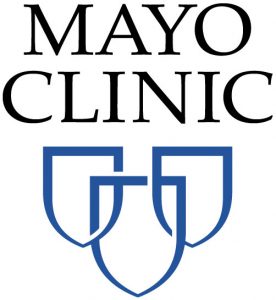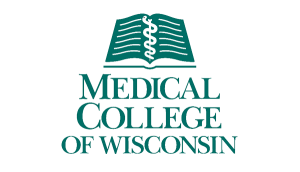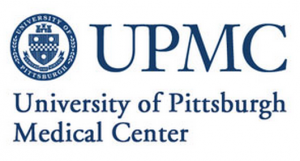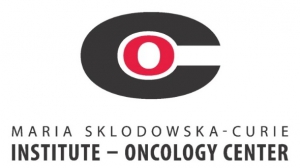Background
Various centers around the world are currently investigating the feasibility and yield of screening and surveillance for pancreatic cancer in high-risk individuals.
Evidence is beginning to accumulate that surveillance may lead to the early detection of non-invasive precursor lesions and asymptomatic early stage pancreatic cancer.
Ultimately, the goal of surveillance is to reduce mortality in these high-risk individuals.
Consortium
Many research questions need to be answered to confirm the feasibility and yield of screening and surveillance in high-risk individuals and to develop evidence-based surveillance protocols. For this, large cohorts are needed, but the numbers of high-risk individuals in each separate surveillance facility are too small.
The ‘CAncer of the Pancreas Surveillance’ (CAPS) consortium is a unique collaboration, created to pool data from different centers. It organizes and facilitates research on surveillance for pancreatic cancer in high-risk individuals on a global scale.
The key characteristics of the CAPS consortium are:
– No internal competition but collaboration based on trust
– Joint discussions of study protocols
– An open, approachable atmosphere of communication
– A multidisciplinary collaboration
Registry
Design
This international multicenter observational registry is designed to collect data, assembled in the setting of either clinical care or research programs.
Population
Eligible are all high-risk individuals who are under surveillance for pancreatic cancer. Participating centers can employ their own in- and exclusion criteria.
Methods
The CAPS registry enables clinicians to easily record data in an online eCRF. Data is saved in an anonymized database, which clinicians can access to review or update their own collected information.
Surveillance strategies are individually determined by each participating center. The CAPS consortium guidelines (Canto et al., Gut, 2013, see downloads) can provide guidance regarding who to screen, when to start, which modalities can be used, and how to manage the findings. The revised Sendai guidelines (Pancreatology, 2012) offer guidelines for the follow-up strategy of pancreatic cystic lesions.
The eCRF contains questions regarding
- Demographics
- Detection techniques
- Surveillance results
- Interventions and pathology findings
- Follow-up, outcome, complications and unexpected events
- A video presentation of the eCRF can be found on the home page.
Benefits of joining the CAPS registry
- Easy data collection by eCRF in minutes
- Maintain complete freedom to determine your own strategies
- Receive reminders regarding follow-up dates
- Obtain open access to your collected data
- Be acknowledged as (co-)author in future publications, depending on your level of involvement
Participating centers and investigators
 |
Erasmus University Medical Center, Rotterdam, The Netherlands Prof. dr. Marco J. Bruno, MD, PhD Assistant Prof. dr. Djuna L. Cahen, MD, PhD Dr. Jan-Werner Poley, MD, PhD Drs. Kasper A. Overbeek, MD Drs. Iris Levink, MD Drs. Brechtje D. Koopmann, MD |
 |
 |
Johns Hopkins Hospital, Baltimore, USA Prof. dr. Marcia I. Canto, MD, MHS Prof. dr. Michael G. Goggins, MD |
 |
 |
Academic Medical Center, Amsterdam, The Netherlands Prof. dr. Paul Fockens, MD, PhD Associate Prof. dr. Jeanin E. Van Hooft, MD, PhD, MBA Drs. Kasper A. Overbeek, MD Drs. Brechtje D. Koopmann, MD |
 |
 |
University Medical Center Utrecht, Utrecht, The Netherlands Dr. Margreet G.E.M. Ausems, MD, PhD Prof. Dr. Frank P. Vleggaar, MD, PhD |
 |
 |
University Medical Center Groningen, Groningen, The Netherlands Dr. Hendrik M. Van Dullemen, MD, PhD |
 |
 |
University of Verona, Verona, Italy Drs. Salvatore Paiella, MD Dr. Giuseppe Malleo, MD, PhD |
 |
 |
Washington University Medical Center St. Louis, USA Dr. Dayna Early, MD Thomas Hollander, RN, MS, BSN, CCRP |
 |
 |
Mayo Clinic Florida Jacksonville, USA Prof. Dr. Michael Wallace, MD Dr. Pujan Kandel, MD |
 |
 |
Dana Farber Cancer Institute Boston, USA Dr. Sapna Syngal, MD, MPH Dr. John Saltzman, MD Tara Dhingra, MHS |
 |
 |
Medical College of Wisconsin Milwaukee, USA Associate Prof. dr. Susan Tsai, MD, MHS Dr. Jennifer Geurts, MS, CGC Dr. Chad Barnes, MD Dr. Idayat Akinola, MD, MPH |
 |
 |
University of Colorado Denver Hospital Aurora, USA Associate Prof. dr. Cheryl Meguid, DNP, ACNP Dr. Brian Bauer, MD |
 |
 |
St. Vincent’s Hospital Sydney Dr. David Williams, MBBS, FRACP Dr. Alina Stoita, MBBS, FRACP Tanya Dwarte, clinical research coordinator |
 |
 |
University of Pittsburgh Medical Center Dr. Randall Brand, MD |
 |
 |
University of Michigan Assistant Prof. dr. Elena Stoffel, MD Erika Skoeppe, MS |
 |
 |
The Maria Sklodowska-Curie Memorial Cancer Centre Dr. Marcin Polkowski, MD |
 |
 |
Beaujon Hospital Associate professor Dr. Vinciane Rebours, MD, PhD Dr. Louis de Mestier, MD |
 |
 |
University Hospitals Cleveland Medical Center Professor Dr. Amitabh Chak, MD, PhD Nancy Furey, Research Nurse Coordinator |
 |














